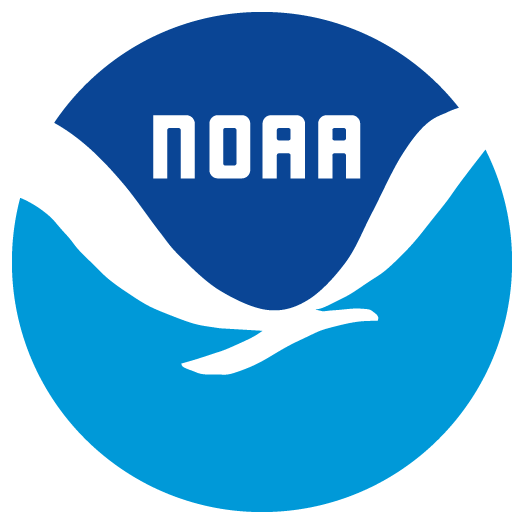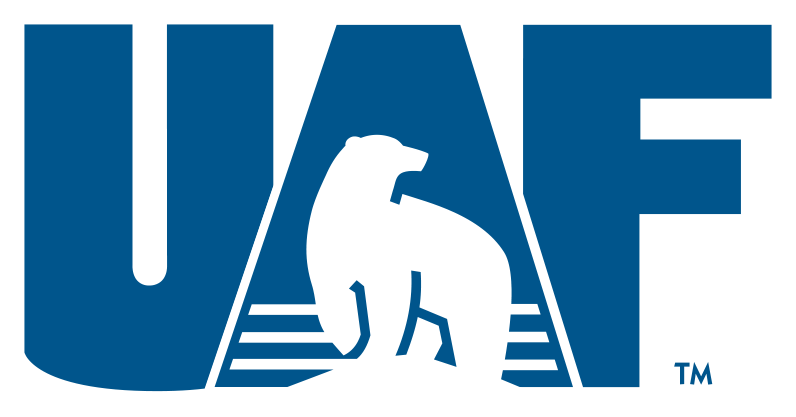Symposium Information
- Background
- Goal
- Program
- Agenda
- Proceedings
- Location & Facilities
- Registration
- Steering committee
- Sponsors
Background
The family Gadidae (and gadid-like fish) includes about 30 species, nearly all of which are marine fishes. This group includes the cods, haddocks, pollocks, lings, whitings, and hakes that inhabit cold-water seas of the North Atlantic, North Pacific, and Arctic oceans. Cod and their relatives are important to the ecology of marine ecosystems and have supported some of the world’s most valuable commercial fisheries for centuries. Cod fisheries have fueled national economies, and wars have even been fought over fishing rights to harvest cod.
In the 1980s and 1990s a number of commercially exploited gadid stocks declined, causing severe economic dislocation. Atlantic cod declined sharply in both the northeast and northwest Atlantic, and most walleye pollock stocks decreased significantly in the North Pacific. Some of these fisheries have remained closed following their stock collapses, and few of those closed fisheries have shown subsequent signs of stock recovery. Nevertheless, a large stock of pollock sustains one of the world’s biggest commercial fisheries in the North Pacific Ocean, and other gadid-like stocks (e.g., Pacific hake off the U.S. West Coast) appear to remain healthy.
Both climate and fishing have been implicated in the fluctuations and collapses of gadid stocks around the world. For example, in Europe the virtual cessation of fishing during two world wars during the twentieth century clearly demonstrated that gadids and gadid-like fish are able to recover from prolonged periods of overfishing. Likewise, the gadid outburst of the 1960s to early 1980s—an increase in recruitment and abundance of haddock, cod, and related stocks in the North Sea—was associated with increases in calanoid copepods (prey) that were driven by decadal-scale changes in climate.
But, just what have we learned from all this? What determines the resiliency of one gadid stock versus another? How can the intertwined effects of fishing and climate change be distinguished? Are there early indicators of impending problems? Are stock-structure issues involved? What are the lessons to be learned from empirical case studies, as well as new findings about reproductive biology, population dynamics, and fisheries oceanography? Will these findings remain relevant under ongoing global climate changes? What is the explicit advice to fishery managers, not only in terms of rebuilding depleted stocks, but also to avert collapses of gadid stocks that are currently healthy?
Goal
The goal of this symposium is to bring together scientists and managers of gadid and gadid-like fisheries from the Atlantic, Pacific, and Arctic Ocean regions to synthesize the requirements for resiliency of gadid stocks to fishing and climate change. The organizers of the symposium plan a comparative approach across different management systems and marine ecosystems over multiple climate regimes. Gadids are an ideal focus for this effort, because of their long history of exploitation, the quality and quantity of research and fishery monitoring, and relevance to current management and rebuilding efforts of some of the world’s most commercially important fisheries. We will build upon recent symposia on effects of fishing, as well as those on climate variability, including activities of the ICES/GLOBEC Working Group on Cod and Climate Change. Also, this symposium complements the Ecosystem Studies of Sub-Arctic Seas (ESSAS) program, which is considering comparative studies of marine ecosystems of subarctic seas to improve management of these important regions during a period of rapid environmental change.
Program
The registration desk will be open at 8:00 a.m. Tuesday, October 31, 2006, for you to pick up your name badge and symposium materials. Presentations will begin on Tuesday morning with a keynote presentation by Dr. Odd Nakken, Director Emeritus, Norwegian Institute of Marine Research, and will run through early afternoon on Friday, November 3. There will be a catered reception and poster session on Tuesday afternoon. A light continental breakfast will be available in the meeting room each morning; other meals will be on your own.
Presentations will occur within the following topic sessions:
- New Understandings of Gadid Biology and Life History
- Mechanisms of Fishery Collapse or Resiliency
- Effects of Fishing on Biological and Ecological Attributes
- Population Dynamics of Gadids
- Biophysical Mechanisms of Recruitment Variability
- Effects of Climate and Oceanography on Gadids, Their Predators, and Prey
- Role of Gadids in Ecosystem Structure and Dynamics
- Fishery Management and Rebuilding Strategies
Agenda
A preliminary agenda is posted on the Web and will be updated as needed. The program includes presentations by researchers from Sweden, Russia, Greenland, Denmark, Norway, Denmark, Canada, and the United States.
The official language of the symposium is English. Participants needing interpretation or translation services should provide their own, and notify the symposium coordinator.
Proceedings Book
Alaska Sea Grant will publish a peer-reviewed proceedings book, including full papers based on oral and poster presentations, soon after the symposium.
Location and Facilities
The symposium will be held in Anchorage, Alaska's largest city. In late October to early November, average temperatures range from 15°F to 30°F with about 10 hours of daylight. Be prepared for cool, wet weather.
All meeting sessions will be held at the Hotel Captain Cook. The Captain Cook offers very nice accommodations with wireless Internet in meeting and guest rooms. There are a variety of guest amenities, including a café, fine dining, business center, health club, swimming pool, and whirlpool. Most guest rooms have great views.
Guest room accommodations are available for symposium participants at a special rate of $95.00 per night, single or double occupancy. Add 12% tax to all room prices. Be sure to make your reservations by October 15th, and mention the Wakefield Fisheries Symposium for the group rate. The hotel can now accept symposium reservations online: go to the Group Reservations page and enter the word "wakefield" (no quotes, all lowercase). Or contact the hotel at:
Hotel Captain Cook
939 W. 5th Ave.
Anchorage, AK 99501
1-800-843-1950 toll free or 907-276-6000
http://www.captaincook.com
Registration
The registration fee is $225.00 US if paid on or before October 15; it will be $250.00 if paid after October 15, 2006. The fee covers light continental breakfast and break refreshments daily; a catered reception on Tuesday, October 31; symposium materials; and the published proceedings book, postage paid. You are urged to register and pay your fees in advance so that adequate materials are available.
Make checks payable to Alaska Sea Grant College Program (money order or US funds check from US bank). Visa and MasterCard are also accepted. If it becomes necessary to cancel your registration, fees will be refunded at 75% if notice is received by October 21, 2006.
You can register online for the symposium using our secure form, or if you prefer, fill out and return our printable registration form to the symposium coordinator. If you have any questions or need further information, please see the contact information at the bottom of this page.
Steering Committee
- Gordon H. Kruse, chair
University of Alaska Fairbanks, School of Fisheries and Ocean Sciences, Juneau Center, Juneau, Alaska - Ken Drinkwater
Institute of Marine Research, Bergen, Norway - Jim Ianelli
NOAA Fisheries, Alaska Fisheries Science Center, Seattle, Washington - George Lilly
Department of Fisheries and Oceans, Northwest Atlantic Fisheries Centre, Newfoundland, Canada - Jason Link
NOAA Fisheries, Northeast Fisheries Science Center, Woods Hole, Massachusetts - Mikhail Stepanenko
Pacific Fisheries Research Center (TINRO-Center), Vladivostok, Russia - Diana Stram
North Pacific Fishery Management Council, Anchorage, Alaska - Vidar Wespestad
Resource Analysts International, Lynnwood, Washington - Doug Woodby
Alaska Department of Fish and Game, Division of Commercial Fisheries, Juneau, Alaska
Sponsors
- Alaska Sea Grant College Program
- Alaska Department of Fish and Game
- NOAA Fisheries (National Marine Fisheries Service)
- North Pacific Fishery Management Council
- Wakefield Endowment (University of Alaska Foundation)



